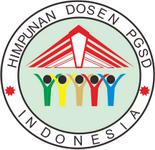IMPLEMENTING PROBLEM-BASED LEARNING TO ENHANCE PANCASILA EDUCATION OUTCOMES IN GRADE IV AT ELEMENTARY SCHOOL
DOI:
https://doi.org/10.31949/jcp.v11i1.11298Abstract
The low learning outcomes in Pancasila Education among Grade IV students at SD Negeri Golo Yogyakarta highlight the need for innovative teaching strategies. This research aims to improve students' learning outcomes by implementing a Problem-Based Learning (PBL) model for Pancasila Education under the framework of the Merdeka Curriculum. The study adopts a classroom action research (CAR) approach using the Kemmis and McTaggart model, which involves four stages: planning, action, observation, and reflection. The research was conducted over two cycles, utilizing pretest-posttest, observation, and documentation as data collection methods. Data were analyzed using both qualitative and quantitative techniques to evaluate learning outcomes and student engagement. The findings demonstrate that the PBL model effectively enhances students' cognitive skills and engagement in Pancasila Education. Learning outcomes showed consistent improvement across the cycles, indicating the relevance of PBL in fostering critical thinking and understanding of Pancasila values. The study underscores the importance of contextual and student-centered learning methods in achieving educational objectives aligned with the Merdeka Curriculum.
Keywords:
'Problem Based Learning', Pancasila Education, Learning OutcomeDownloads
References
Gumilar, G., Rosid, D. P. S., Sumardjoko, B., & Ghufron, A. (2023). Urgensi Penggantian Kurikulum 2013 menjadi Kurikulum Merdeka. Jurnal Papeda: Jurnal Publikasi Pendidikan Dasar, 5(2), 148–155.
Haryati, I., Santoso, I., Sudarmaji, Rikfanto, A., Mulyati, R. E. S., & Megawati, S. (2022). Upaya Meningkatkan Kompetensi Guru-Guru Bahasa Jerman Melalui Pelatihan Penelitian Tindakan Kelas. Prima : Portal Riset Dan Inovasi Pengabdian Masyarakat, 1(3), 65–74.
Hidayah, Y., & Retnasari, L. (2019). Reorientasi pendidikan pancasila dan kewarganegaraan pada sekolah dasar dalam wacana kewarganegaraan smart and good citizen. Jurnal Citizenship: Media Publikasi Pendidikan Pancasila Dan Kewarganegaraan, 2(1), 27-33.
Hotimah, H. (2020). Penerapan metode pembelajaran problem based learning dalam meningkatkan kemampuan bercerita pada siswa sekolah dasar. Jurnal edukasi, 7(2), 5-11.
Kusuma, Y. Y. (2021). Peningkatan Hasil Belajar SIswa dengan Menggunakan Model Pembelajaran Problem Based Learning di Sekolah Dasar. Jurnal Basicedu, 4(4), 1460–1467.
Maliasih, Hartono, & Nurani, P. (2017). Upaya Meningkatkan Motivasi Belajar dan Hasil Belajar Kognitif Melalui Metode Teams Games Tournaments dengan Strategi Peta Konsep Pada Siswa SMA. Jurnal Profesi Keguruan, 3(2), 222–226.
Nurrohim, Suyoto, & Anjarini, T. (2022). Peningkatkan Keaktifan Siswa Melalui Model Problem Based Learning pada Mata Pelajaran PKn Kelas IV SD. Sittah, 2745–4479, 60–75.
Nurul Audie. (2019). Peran Media Pembelajaran Meningkatkan Hasil Belajar. Posiding Seminar Nasional Pendidikan FKIP, 2(1), 586–595.
Prasetyo, T. (2019). Upaya Peningkatan Hasil Belajar PKn melalui Model Pembelajaran Problem Based Learning pada Siswa Kelas VI SDN Gendongan 02. Cahaya Pendidikan, 5(2), 1–12.
Pratiwi, E. T., & Setyaningtyas, E. W. (2020). Kemampuan Berpikir Kritis Siswa Melalui Model Pembelajaran Problem Based Learning dan Model Pembelajaran Project Based Learning. Jurnal Basicedu, 4(2), 379–388.
Pribadi, R. E. (2017). Implementasi Sustainable Development Goals (SDGs) Dalam Meningkatkan Kualitas Pendidikan Di Papua. EJournal Ilmu Hubungan Internasional, 5(3), 917–932.
Qiptiyyah, M. (2020). Penelitian Hasil Belajar PKn Materi Kedudukan dan Fungsi Pancasila melalui Metode Jigsaw Kelas VIII F MTs Negeri 5 Demak. G-Couns: Jurnal Bimbingan Dan Konseling, 5(1), 62–68.
Rahadian, A. (2016). Strategi Pembangunan Berkelanjutan. Prosiding Seminar STIAMI, III(01), 46–56.
Saputro, H. B., & Marantika, R. (2023). Upaya Meningkatkan Motivasi Dan Hasil Belajar Pada Materi Operasi Hitung Bilangan Cacah Melalui Pendekatan Realistic Mathematics Education Untuk Peserta Didik Kelas II. Educatio, 18(1), 76-90.
Sayuti, S. (2018). Upaya Peningkatan Hasil Belajar Pkn Melalui Metode Problem Based Learning Pada Siswa Kelas V Sd Negeri 3 Gaden Trucuk Klaten Tahun Pelajaran 2016/2017. Jurnal Pendidikan Dasar, 5(2).
Somayana, W. (2020). Peningkatan Hasil Belajar Siswa Melalui Metode Pakem. Jurnal Pendidikan Indonesia, 1(03), 283-294.
Sulistiana, I. (2022). Peningkatan Hasil Belajar Siswa melalui Model Pembelajaran Problem Based Learning (PBL) pada Mata Pelajaran IPA Kelas IV SDN Blimbing Kabupaten Kediri. PTK: Jurnal Tindakan Kelas, 2(2), 127-133.
Sukaptiyah, S. (2015). Peningkatan Hasil Belajar PKn melalui Model Problem Based Learning pada Siswa Kelas VI SD Negeri 1 Mongkrong. Scholaria, 5(1), 114–121.
Sumaryati, S., Retnasari, L., & Winarti, T. (2020). Pemanfaatan Teknologi Informasi (TI) dalam Penguatan Tujuan Pendidikan Pancasila dan Kewarganegaraan pada Peserta Didik di Sekolah Memengah Atas. Jurnal Pancasila Dan Kewarganegaraan, 5(2), 1–12.
Wati, K., Armida, A., & Fatmawati, K. (2019). Meningkatkan Keaktifan Belajar Melalui Model Problem Based Learning dalam Pembelajaran Tematik pada Siswa Kelas V Madrasah Ibtidaiyah Nurul Ittihad Kota Jambi. Undergraduate Thesis. Jambi: UIN Sulthan Thaha Saifuddin Jambi.
Wijayanti, R. (2016). Peningkatan Prestasi Belajar PKn Melalui Penerapan Model Pembelajaran Problem Based Learning. Basic Education, 5(34), 3-227.
Published
How to Cite
Issue
Section
License
Copyright (c) 2025 Nada Yumna Hanifah, Lisa Retnasari, Ella Kusuma Wardani, Muhammad Alfarizqi Nizammuddin Ghiffari

This work is licensed under a Creative Commons Attribution-ShareAlike 4.0 International License.
Authors who publish with this journal agree to the following terms:
- Authors retain copyright and grant the journal right of first publication with the work simultaneously licensed under a Creative Commons Attribution License that allows others to share the work with an acknowledgment of the work's authorship and initial publication in this journal.
- Authors are able to enter into separate, additional contractual arrangements for the non-exclusive distribution of the journal's published version of the work (e.g., post it to an institutional repository or publish it in a book), with an acknowledgment of its initial publication in this journal.
- Authors are permitted and encouraged to post their work online (e.g., in institutional repositories or on their website) prior to and during the submission process, as it can lead to productive exchanges, as well as earlier and greater citation of published work (See The Effect of Open Access).


